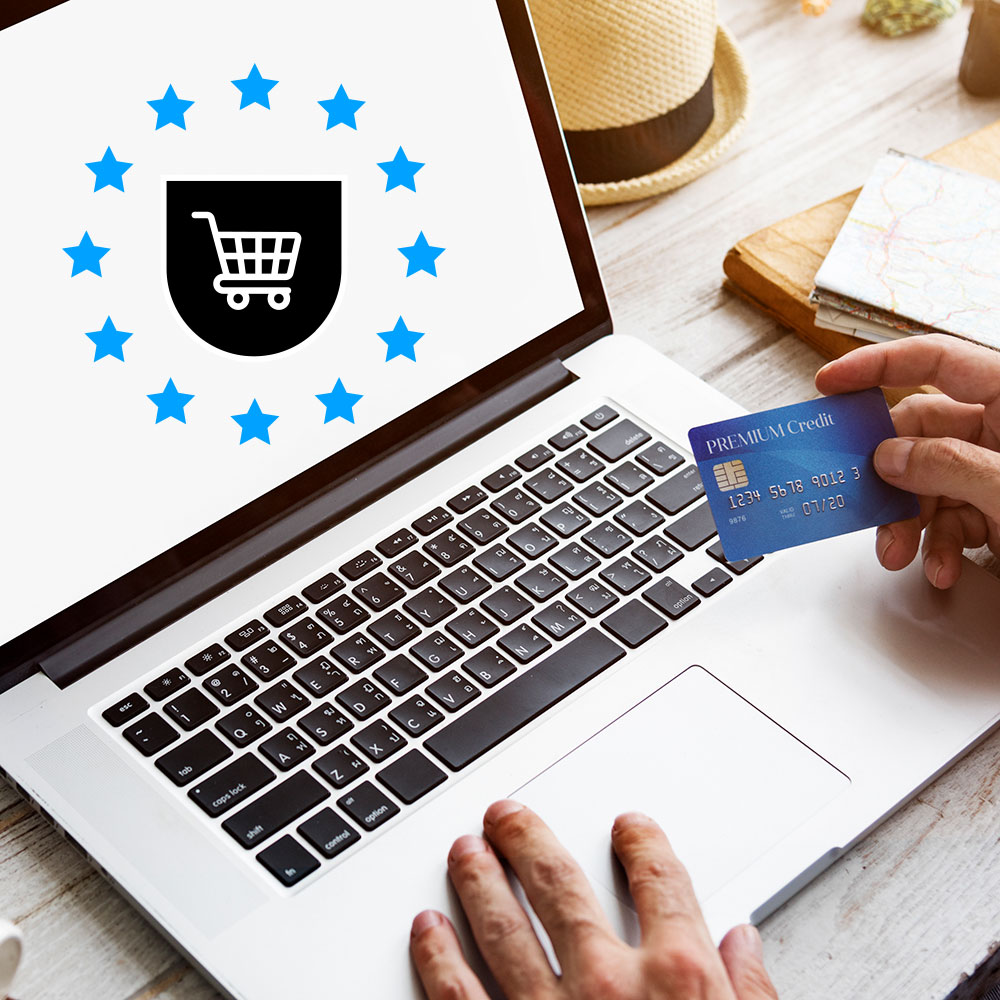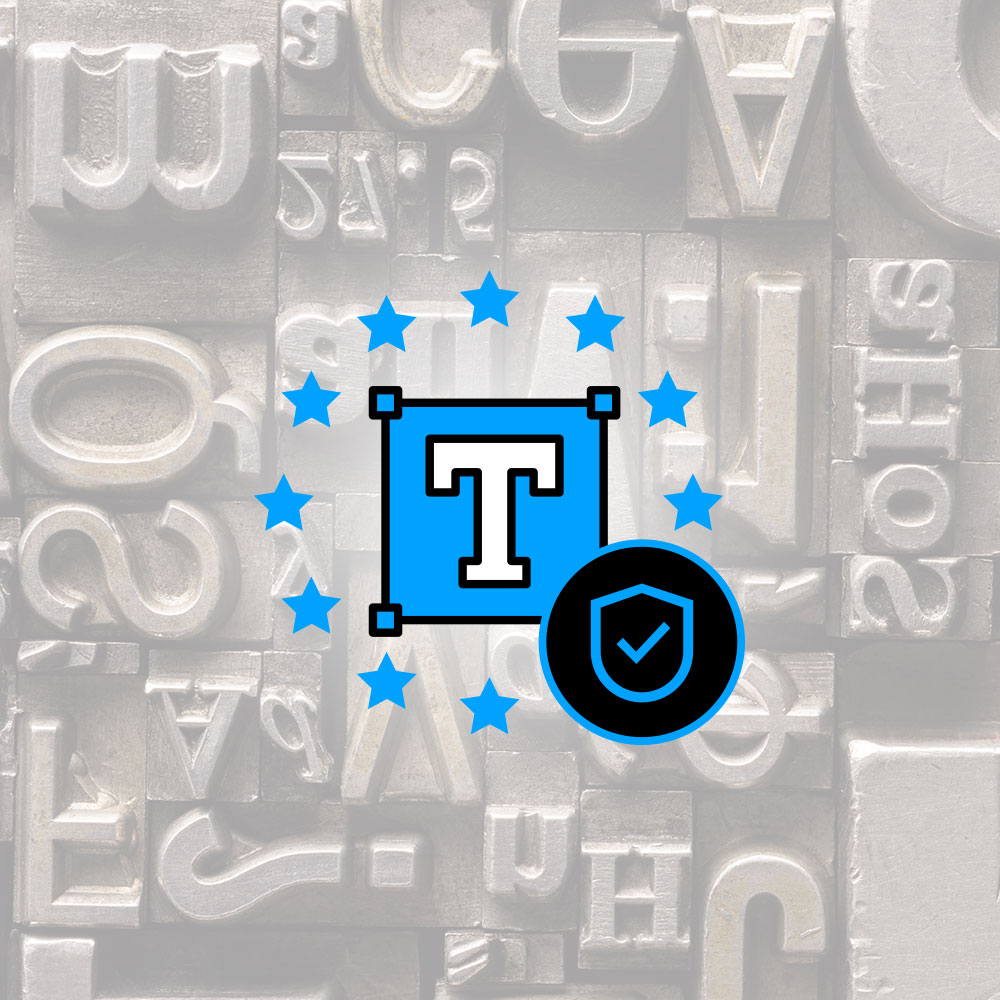The European Union (EU) currently has the world’s second-largest economy and a population of nearly 450 million people, with 72 percent of those residents buying goods or services online. For companies located both within and outside the EU, it’s a significant and valuable market to target.
But selling to consumers, especially online, requires collecting and processing personal information. So do web analytics, marketing, and other business functions that go along with making those sales. While it’s worth targeting EU residents, any e-commerce business that does so needs to comply with the General Data Protection Regulation (GDPR).
The companies that are most successful in this market will be those that understand that putting privacy first is not a business roadblock, but a competitive advantage.
What is the GDPR and what does it mean for EU consumers?
- The GDPR applies to any e-commerce business processing the personal data of EU residents, regardless of location.
- Businesses must follow core GDPR principles: transparency, lawful processing, data minimization, and clear opt-in consent.
- Noncompliance can result in fines of up to EUR 20 million or 4 percent of global annual revenue, plus reputational damage.
- E-commerce data flows across checkout, payments, shipping, and marketing, making GDPR compliance complex but essential.
- A clear privacy policy, secure data storage, and timely responses to data subject requests are required for compliance.
- Third-party vendors like payment processors and shipping providers must also meet GDPR standards.
- Training employees on GDPR and appointing a data protection officer (DPO) where necessary strengthen compliance.
- Automating consent management with a consent management platform (CMP) reduces risk and builds customer trust.
The GDPR provides EU consumers with protection and control over how their personal data is collected, used, and sold. And in e-commerce, personal data is collected for everything from website visitor analytics to purchase transactions and product shipping.
That means ongoing GDPR compliance needs to be a key consideration for e-commerce businesses that have customers located in the EU.
The GDPR can apply whether a company is based in the EU or not, i.e. it’s extraterritorial. What matters is if the company processes data belonging to EU residents.
Per Art. 5 GDPR, businesses must only collect and process as much data as is reasonably necessary, a principle referred to as data minimization. The regulation also requires organizations to obtain consent for personal information processing from consumers before collecting their data. This is commonly referred to as an opt-in consent model.
For consumers’ consent to be considered valid, it must be “freely given, specific, informed and unambiguous.” Even if EU consumers have previously given consent for the collection and processing of their data, Art. 7 GDPR gives them the right to withdraw that consent at any time.
Why is the GDPR important for e-commerce businesses?
E-commerce businesses rely on customers’ personal data to manage operations, from analyzing customer behavior and buying habits to processing checkout and returns. The GDPR regulates how you can collect and process data, and you need to maintain compliance to avoid fines and penalties.
Many e-commerce businesses also work with third parties for payment processing, shipping, and marketing. The GDPR holds you responsible for any third-party data processing activities, so proactive compliance management is essential to prevent violations.
Beyond legal compliance, upholding GDPR data subject rights also builds customer trust. Almost seven in ten EU citizens are familiar with the GDPR, and customers are far more likely to trust your company and try your product if they believe you are committed to GDPR compliance.
Note: Some GDPR compliance requirements vary across organizations. For example, companies of fewer than 250 people may be exempt from keeping full records of processing activities (RoPA) under Art. 30 GDPR. However, other than a few exceptions, all e-commerce companies need to comply with the GDPR if they process the data of residents located in GDPR countries.
Key GDPR principles for e-commerce
The following GDPR principles shape how your online business must collect, store, share, and use information from EU residents.
- Lawful, transparent, and fair data processing: You must have a valid legal basis for data collection. For example, e-commerce websites can’t enable checkout without data about the items users have added to their carts.
- Data minimization: Collect only the data necessary to complete the stated purpose. For instance, checkout should only ask customers for name, email address for confirmation, physical address for mailing, phone number to facilitate delivery, and payment details. Do not collect additional data that is not required for the specific purpose without consent.
- Purpose limitation: Only use data for the specific purpose for which it was collected. If a customer provides you with an email address for purchase confirmation, for example, you can’t automatically sign them up for your newsletter. If your purposes change, or you need to collect additional data, get new consent.
- Data accuracy: Keep data accurate and up to date. Maintain correct records of information like names, addresses, contact details, and preferences. Correct or update data in a timely manner if you receive a request to do so from the data subject.
- Storage limitation: Don’t keep sensitive data for longer than needed for its purpose. For example, as a retailer, you may need to keep records of payments and purchases to track and manage warranties. When these retention periods have expired, you must either delete or anonymize the data.
- Security: Protect personal data with the appropriate safeguards to prevent unauthorized access. Common security measures include encryption, granular access controls, and secure logins.
- Individual rights: Respond as quickly as possible to all requests to access, correct, delete, or transfer data, or cease data processing. The GDPR typically permits one month to fulfil these requests.
E-commerce GDPR penalties companies should be aware of
Companies found in violation of any GDPR regulations could face penalties of up to EUR 20 million or 4 percent of their annual revenue. Fines can be substantial depending on the scale and severity of the violation.
For example, the French data protection authority, CNIL, imposed a EUR 150 million fine on e-commerce business SHEIN in September 2025 for placing trackers in customers’ browsers without their consent.
Even if your business can absorb a GDPR fine, the reputational damage can have lasting effects. Surveys show that two out of three people would no longer trust an organization after they learned they had misused data.
10 practical steps for making your e-commerce business GDPR-compliant
The following checklist will support you in minimizing GDPR compliance risks, protecting your business and customers’ data and consent, and building trust in European markets.
1. Track how data flows across your departments
As you develop your compliance strategy, you need a comprehensive overview of all your data processing activities. You’ll need to determine what information you collect, how your company processes it, and who has access to it.
E-commerce companies tend to have data scattered across different departments and systems. Here’s what to consider to conduct a thorough check:
- Websites and app analytics
- Marketing analytics
- Email marketing and newsletters
- Payments and refunds
- Shipping and fulfilment
- Customer Relationship Management (CRM) and other business software
Once you’ve identified all your data processing activities, the next step is to visualize them so you can see how information moves through your business. Data mapping makes it easier to identify vulnerabilities that could lead to GDPR noncompliance.
For example, you may discover that your fulfillment center has access to more customer information than necessary, like email addresses and past communications, which violates the GDPR principle of data minimization.
2. Implement measures to keep customer data secure
GDPR compliance requires you to store customer data securely. Though the law doesn’t specify how, it does mention using appropriate technological measures. The idea is that businesses use the latest tools so that their systems have the highest level of security.
For instance, encryption turns plain text into a cipher that unauthorized users are unable to read. It remains one of the most effective ways to safeguard customer data. IBM research shows that implementing encryption can reduce the average cost of a data breach by over USD 200,000 because of how effectively it limits the size and scope of security incidents.
3. Create a clear, comprehensive privacy policy
Adding and maintaining a privacy policy to your website helps you meet the GDPR requirement for transparency. An effective policy provides clarity around what customers are agreeing to so they can give informed consent for any data processing. A comprehensive privacy policy should include:
- What types of data you collect
- Your legal basis for processing
- How you store and process data
- Any third parties you share information with
- Customer rights under the GDPR and how to exercise them
- Security measures you employ to protect data
4. Obtain explicit opt-in consent whenever you gather personal data
Ensure you meet e-commerce consent requirements before handling personal data. The GDPR requires that consent be freely given, specific, informed, and unambiguous.
That means you can’t use pre-ticked boxes or preconfigured settings, construe ignoring a consent banner as consent, or otherwise “nudge” them into sharing their personal data.
For e-commerce brands, this typically involves:
- Displaying a cookie banner on your website
- Leaving sign-up boxes unticked at checkout
- Making marketing preferences clear in account settings
- Asking before adding customers to loyalty programs or newsletters
- Refraining from collecting data when customers have declined consent
Additionally, the GDPR states that it must be just as easy to decline as it is to give consent. The ‘reject’ button must be just as prominent as the ‘accept’ one, and any granular privacy settings must be clear and easy to find.
5. Use a CMP to collect and store customer consent
The GDPR doesn’t permit you to process any data before you’ve received affirmative consent. A consent management platform (CMP) enables you to block cookies and any other trackers automatically until each visitor gives their informed consent.
Usercentrics CMP displays a pop-up consent banner upon a customer’s first visit to your site, as well as whenever your cookie practices change.
A CMP also keeps detailed, timestamped records of consent preferences in case of an audit or data subject access request (DSAR). That way, you can provide proof of compliance to authorities that you only collect or process data once the user has given consent, or when you have another lawful basis for doing so.
6. Respond quickly to data access requests
Build processes for responding to DSARs within the GDPR’s 30-day limit. E-commerce businesses face added complexity because data tends to be scattered across systems like CRMs and payment processors. This means you need a scalable, reliable procedure for fulfilling these requests.
Start by producing templates to respond to DSARs promptly. Then, decide who verifies requests and consolidates the data into a machine-readable format to send back to data subjects. This step helps you meet GDPR requirements for data portability. Your team can use the data maps you create in step one to easily locate information within your system.
7. Closely monitor third-party data processors
Under the GDPR, you’re liable as the data controller for any processing activities carried out by external service providers and other data processors, such as online marketplaces, payment gateways, and advertisers. Implement agreements with these third parties to clarify how they need to process and protect your customers’ personal information.
Continuously monitor compliance and run periodic audits to verify that they’re following your processes. If a third party can’t consistently maintain GDPR compliance, look for an alternative before they pose a risk.
8. Train your team on GDPR principles and requirements
Your staff need to understand why the GDPR matters and how to achieve compliance with its key principles. They’ll be less likely to make mistakes when they understand the law and are aware of the consequences that come with violations.
Training your employees on e-commerce privacy compliance may be challenging, since different teams often handle different data management tools, like helpdesk software and email marketing platforms.
Instead of providing a company-wide course, offer sessions for each department based on their needs, and make training ongoing, rather than a one-and-done checklist item.
For example, anybody who communicates directly with customers should know best practices for GDPR-compliant email marketing to ensure they’re not sending advertising materials to people who haven’t given explicit consent.
9. Appoint a DPO if necessary
Under Art. 37 GDPR, companies that process significant amounts of sensitive personal data must appoint a data protection officer (DPO). This requirement is likely to apply to large online stores as they collect the names, addresses, contact information, and banking details of thousands of customers.
A DPO is responsible for overseeing your data compliance strategy and advising your team on how to meet requirements and obligations. This person also acts as a point of contact with EU data protection authorities in the event of a user complaint or an audit.
10. Lean on good user experience to support audit preparedness
Finally, make it easy for customers to manage their consent preferences. Aside from being a requirement for GDPR compliance, it’s a good practice to create a user experience that builds trust. When customers find it easy to confirm, decline, or update consent, they see that your company respects their privacy and choices.
Here are some best practices to follow:
- Link to privacy settings on your website, in your app, and in emails
- Let customers manage privacy directly in their account settings
- Provide an easy way for customers to opt out at any time
- Give plain language explanations in context for technical terms like ‘essential cookies’ and ‘data processing’
- Design all features, such as consent banners and privacy policies, to be mobile-friendly and easily accessible on any platform
Future-proof your e-commerce business with automated GDPR compliance
Customer data moves through many touchpoints and gets shared with a range of third parties. That’s why manually managing GDPR compliance for webshops can introduce significant legal risks.
Usercentrics automates consent management to minimize gaps in your compliance strategy and build long-lasting trust with your customers. Our geolocation-powered CMP automatically adjusts your site’s cookie banner for EU residents so you can collect explicit, opt-in consent as required by the GDPR.
As Alessio Di Vietro, CIO of luxury Italian retail brand Paul & Shark, explained:
“Usercentrics allows us to comply with data privacy regulations, ensuring transparency and user consent. This not only helps us avoid legal sanctions, but also build and maintain the trust of our users, improving their overall experience on our website.”
Usercentrics automates consent management so your team can focus on improving your product, positioning, and the customer experience, setting you up for success in EU markets and beyond.



